By Liana Jacob
THIS WOMAN was so depressed about her rare disability that she attempted suicide TWICE but has since come to accept her condition with the help of her loving husband who bathes her, carries her and takes her to appointments – and although she was told that everyone with her disorder SHOULD BE STERILISED by her anaesthetist she is now the proud parent of a little boy with the same condition.
Doula, Amy Miller (25), from Ontario, Canada, was just two years old when she was diagnosed with Marfan syndrome, a disorder of the body’s connective tissues, a group of tissues that maintain the structure of the body and support internal organs and other tissues.
She was in and out of the hospital so much that she assumed it was a common thing growing up, however, when she was 10, she realised that she was different from her peers and she started to get bullied for her look. The common symptoms of Marfan syndrome are being unusually tall with particularly long and slim limbs, fingers and toes with heart defects and lens dislocation.
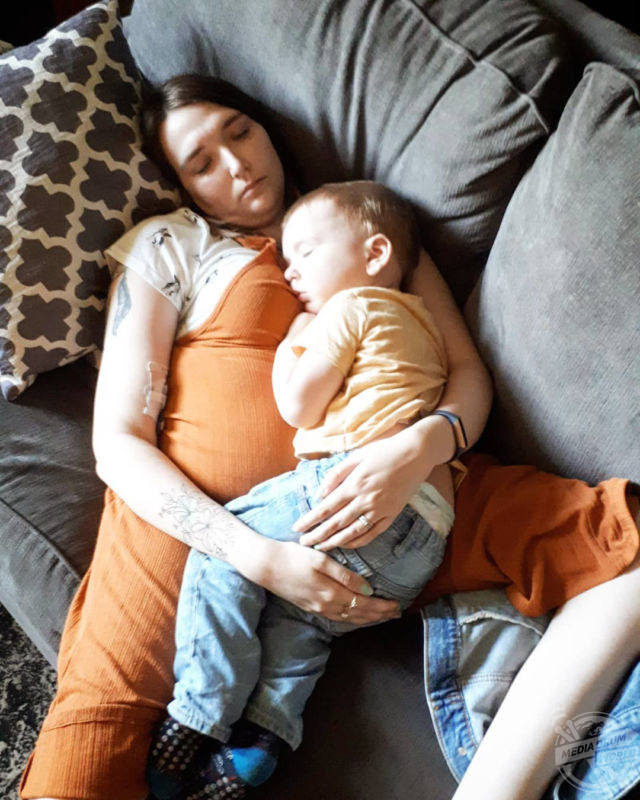
The bullying became so severe that she fell into depression and attempted suicide twice during her late teen years and felt progressively insecure about her body. She felt isolated by her peers until one day she discovered a foundation that helped people who had the same condition, where she made connections.
In 2014, she began chatting to her now-husband, Alex (25), on a dating website and despite living two hours apart, they embarked on a long-distance relationship for the following four years. From the beginning, Alex began researching her condition so that he could understand it better. Just three months into dating, they moved in together and he has been her full-time caregiver; bathing her, carrying her from place to place and helping her with her medication.
The two now have a son together, who also has Marfan syndrome, and during a minor gallbladder removal surgery irrelevant to her condition, Amy’s anaesthetist told her that people with Marfan syndrome should be ‘sterilised’ which upset her but has since proved her wrong by raising her family with love.
“I was diagnosed with Marfan at the age of two; I am the only person in my family to be diagnosed. When I was young, I believed I was like everyone else,” Amy said.
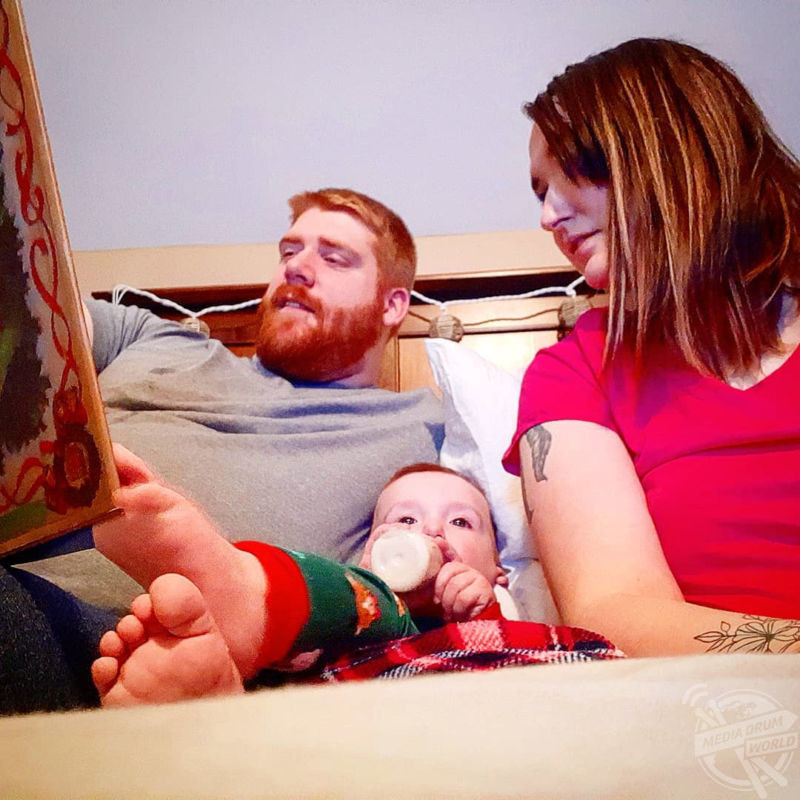
“I thought it was a common thing to spend so much time at the doctors and going through testing, bracing, etc. When I was ten years old, that was the first time I realised that I was very different from my peers.
“Growing up it was extremely isolating; not ever knowing or seeing any another person who looks like I do.
“The bullying at school had become a regular thing and it really wore down my self-confidence. I struggled with this for many years.
“Today I am a huge advocate for body positivity and loving yourself as you are at the current moment, regardless of your situation. I am very open about my struggles and successes with this.
“High school was hard for me; I was bullied a lot. I also missed a lot of school due to my illness and hospital stays.
“I really struggled with my mental health as well; depression and anxiety were consuming at times. I had two suicide attempts and spent some time in the hospital.
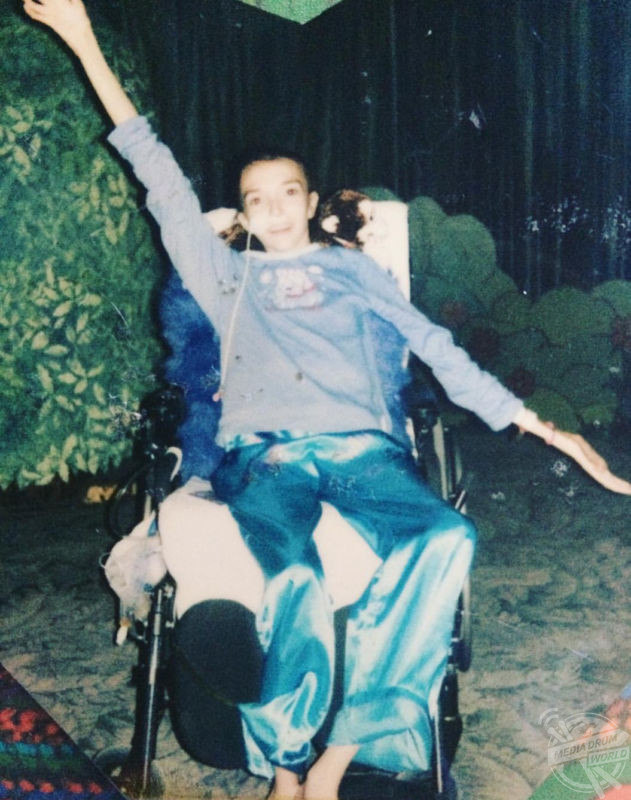
“It wasn’t until I was older and reached out to the foundation that I started making connections with other people who are going through the same things as me.
“I had a lot of anger and confusion surrounding my diagnosis; my family didn’t understand all the things that were happening with me, so I also didn’t understand what was happening to me.
“I have had seven major surgeries in my life. I have a full spinal fusion; when they fused me, they had to open up my entire back, stretch me out, and fuse me.
“They then went in through the front and fused my pelvic bone. After this particular surgery I spent months in the hospital and had to be in a body cast.
“There were a lot of complications and I was paralysed from the neck down. After extensive therapy I regained most of the feeling and control in my body, but still suffer from complications and nerve damage.”
Amy says that she has sought comfort and support from her husband, Alex, who she met through a dating site five years ago.

She has been advocating for other caregiving relationships to show that they can hold the same intimacy as any other relationship and that it is possible to build a family despite her physical disabilities.
As a child, Amy would be taller than most of her peers, until she started having back surgeries which stopped her torso from growing and is now 5ft 3in, but her arm span is over 6ft.
“My husband and I met online on a dating site; we lived two hours apart, so we talked for a while before we were able to meet each other for the first time,” she said.
“We met five years ago; from the very start he had attended medical appointments with me and did all the research he could about my conditions so that he could understand better.
“His family did the same thing, as they are also very supportive and understanding. After doing long-distance, we moved in together after just three months of dating. I never second guessed anything.
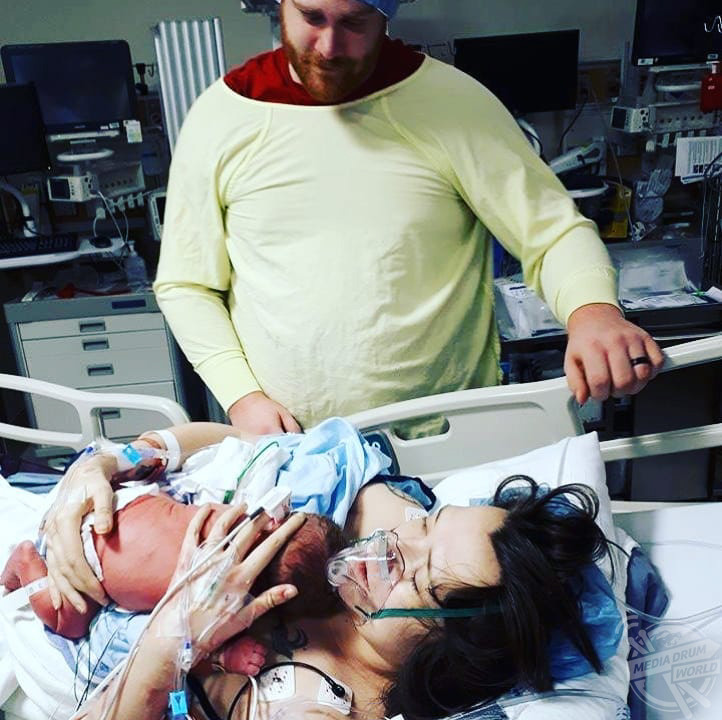
“Being in a relationship with someone who also acts as my caregiver can be challenging. Of course, I have the fear that maybe one day my husband will decide that this is too much, too stressful, and walk away.
“It’s a real fear for most relationships though, I think. It’s about trust and vulnerability. My husband does a lot of research on my conditions and how he can help me better. He is in some support groups to talk to other people in the same situation.
“He helps me by bringing me to my doctor appointments, carrying me, helping me bathe when I cannot, massaging my sore limbs, managing my medications, giving me my meds through my PICC line.
“I decided to advocate for caregiving relationships because there is such a negative stigma attached to it. People think that our relationship is destined to fail, or that it isn’t valid the same way a non-caregiving relationship is.
“I want people to know that the romance in our relationship isn’t dead just because my husband has to help me do some tasks.
“I think that it allows us to have a unique bond that other people don’t. We’re so open around each other.
“People will always tell my husband how amazing he is to be in a relationship with someone like me. I always feel insulted to hear this. He is an amazing person, but I am not something to score brownie points over. I’m a person.”
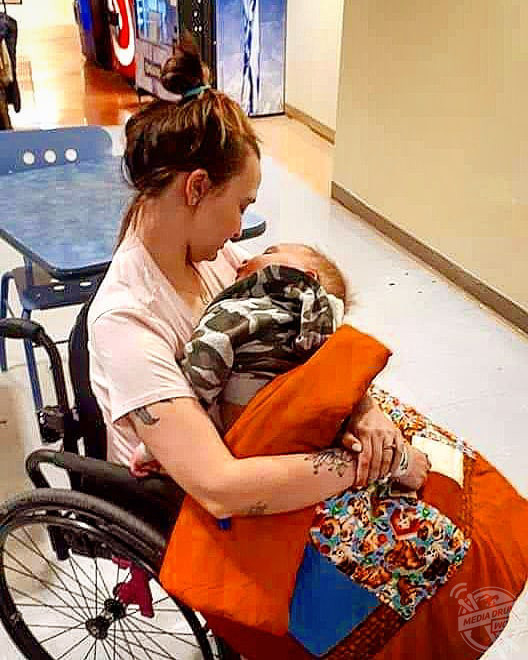
Amy says that people have misconceptions of caregiving relationships and her role as a mother to a child. She has made it her mission to show that they are not true.
“Misconceptions around caregiving relationships that are untrue are that there is no intimacy. That’s the furthest thing from the truth. If anything, I believe that this adds intimacy to the relationship,” she said.
“The complete vulnerability that you have to give is intimacy on its own. Another is that the caregiving person is now missing out on something by being in this type of relationship. My husband tells me all the time how he now views life differently after being with me.
“The toughest part was starting a family and the comments we received surrounding this from family and friends.
“Some people thought that we didn’t think things through, or that I wouldn’t be able to handle pregnancy and parenthood. We really didn’t let it get to us too much, as we were both on the same page and so were my doctors.
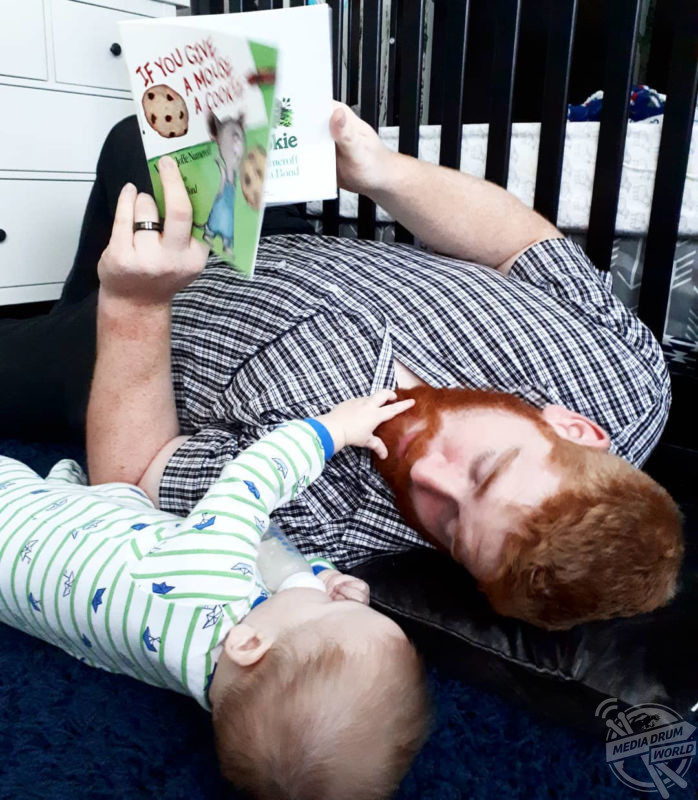
“I have received many comments that were difficult to digest; one of the big ones that stand out to me was what an anaesthetist that was putting me to sleep for an unrelated, minor surgery, told me.
“She said that in her professional opinion, everyone with Marfan Syndrome should be sterilised. I had to talk it through with a therapist because it upset me so much. I don’t think I will ever forget it.
“My future plans are to help the birthing world understand how to work with disabled people. I want to make big changes in how expecting parents with disabilities are treated in the medical field.
“The bad days will be bad, but the good days will make everything worth it. When you see your child looking up at you, when you get good news at the doctors for once, when you make progress in your personal and professional life, being here is worth it. Just hold on.”






